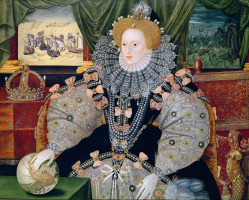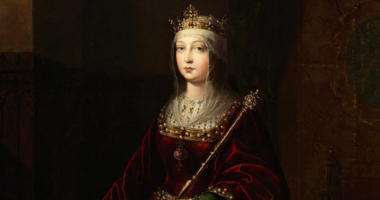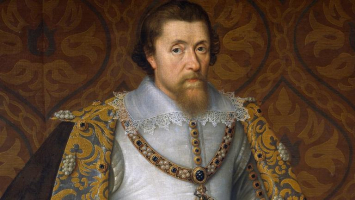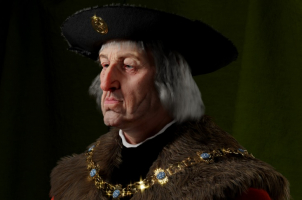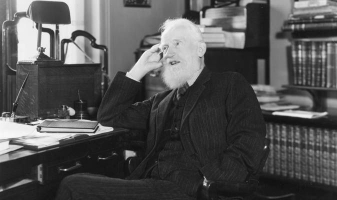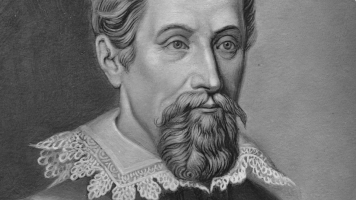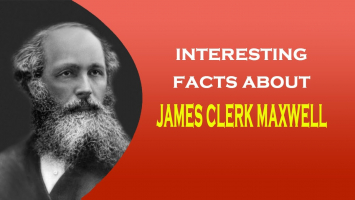Top 6 Interesting Facts about Juan Carlos I
There are facts about Juan Carlos I that you may not have known. Juan Carlos is the former King of Spain, who ruled from 1975 to 2014, ascended the throne two ... read more...days after the death of his predecessor, Francisco Franco.
-
Carlos was crucial in establishing democracy in Spain. Carlos played an important part in turning Spain into a Democracy. In 1947, Franco, the predecessor king, abolished Spain's second republic and re-established the Monarchy. Juan Carlos maintains the Monarchy, but also promotes the democratic process. People will vote to choose who will fill government positions.
Juan Carlos is expected to continue Franco's legacy. However, Juan Carlos introduced reforms that abolished the French regime and began the transition to democracy in Spain shortly after his accession. This led to the adoption of the Spanish Constitution of 1978 in a referendum to re-establish the constitutional monarchy. In 1981, Juan Carlos played a key role in preventing a coup d'etat that brought Spain into the French government in the name of the King.
In 2008, he was considered the most popular leader in Ibero-America. Praised for his role in Spain's transition to democracy, one of the interesting facts about Juan Carlos I. The king and the reputation of the monarchy began to suffer. after the controversy surrounding his family arose, exacerbated by a public controversy centered on an elephant hunting trip he took during the financial crisis in Spain.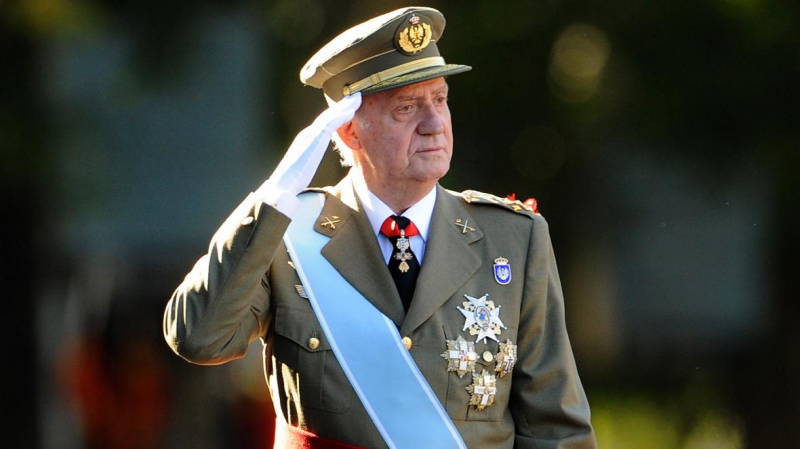
Photo: https://www.thetimes.co.uk/ 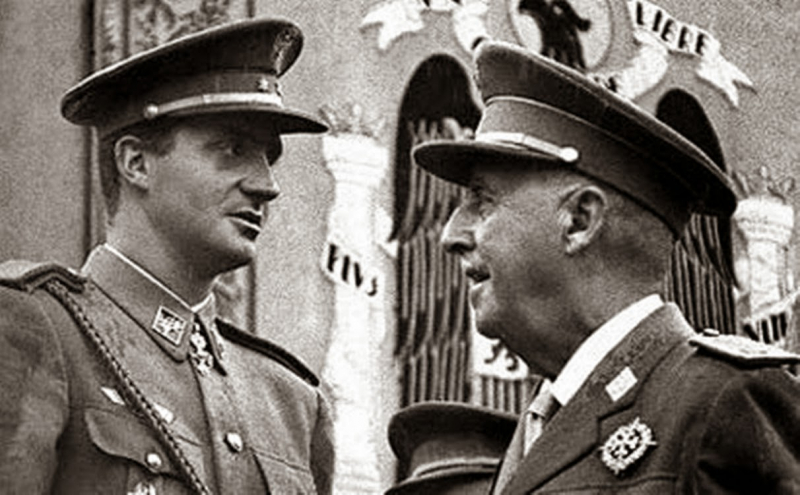
Juan Carlos I brought Spain from dictatorship to democracy - Photo: http://3.bp.blogspot.com/ -
In 1957, Juan Carlos studied for a year at the naval school at Marín, Pontnticra, and another year at the Air Force school at San Javier in Murcia. He attended the University of Madrid from 1960–1961 to study law, international political economics, and public finance. After that, he lived in the Palace of Zarzuela and began to make official engagements.
As members of the royal family tend to do, Juan Carlos married the princess of another land. Without a doubt, it was to establish or strengthen relations with Greece. This commercial marriage was probably not too unfamiliar to the aristocracy. The purpose of marriage is just to prove a cooperative relationship between the two countries. That's why Juan Carlos had to marry an unloving wife.
Juan Carlos was married in Athens on May 14, 1962, to Princess Sophia of Greece and Denmark, daughter of King Paul of Greece, first in a Roman Catholic ceremony at St. Denis, followed by a Greek Orthodox service at the Metropolitan Cathedral of Athens. She converted from Greek Orthodoxy to Roman Catholicism. They had three children: Elena (born 1963), Cristina (born 1965), and Felipe (born 1968). Felipe will continue to inherit the Spanish crown.
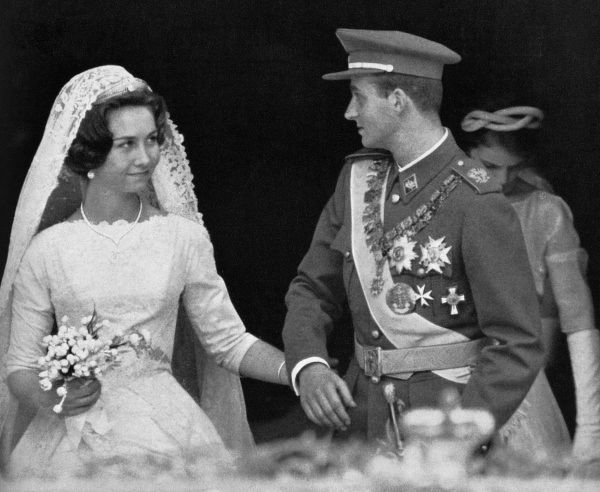
Photo: https://www.mediastorehouse.co.uk/ 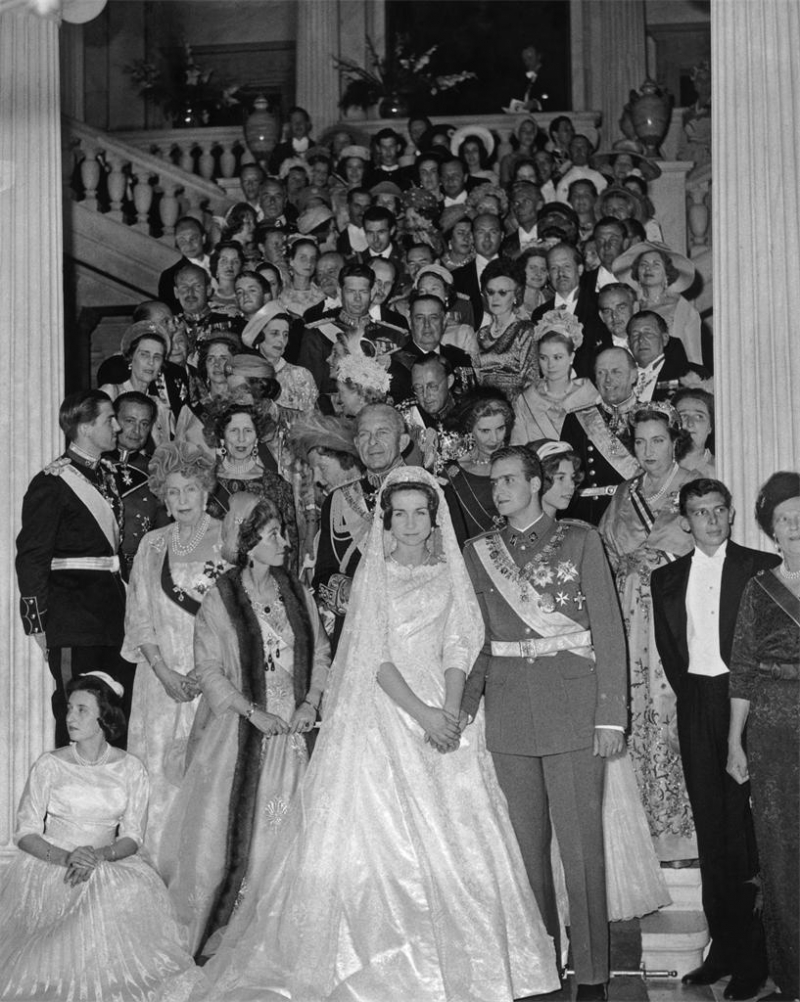
Photo: https://1.bp.blogspot.com/ -
Juan Carlos snatches the bait and changes direction. He presented himself as a very conservative person who supported the political stance of his grandfather Franco. One of the interesting facts about Juan Carlos is that this act of conservatism is what made Carlos ascend to the throne in the first place. Franco had to pass a law declaring Carlos heir to the throne. Franco rejected other possible candidates because they were too liberal, in his opinion.
However, as soon as Juan Carlos was crowned King of Spain, he showed his true colors as a liberal. One of Carlos' first acts was to appoint Adolfo Suarez as Prime Minister. Suarez is a reformer who will continue to push a liberal agenda. Carlos also encouraged the establishment of political parties in Spain and supported the movement to free political prisoners. Needless to say, this is not what Franco envisioned, but since Franco is dead, there's nothing he can do about it.
Spain's first post-Franco democratic elections took place on June 15, 1977. Juan Carlos acted as a middleman to transfer $10 million from the Shah of Persia to Adolfo Suárez's election campaign, allegedly asking the Shah for money to "save Spain from Marxism". In 1978, the government promulgated a new constitution that recognized Juan Carlos as the rightful heir to the Spanish crown and king.
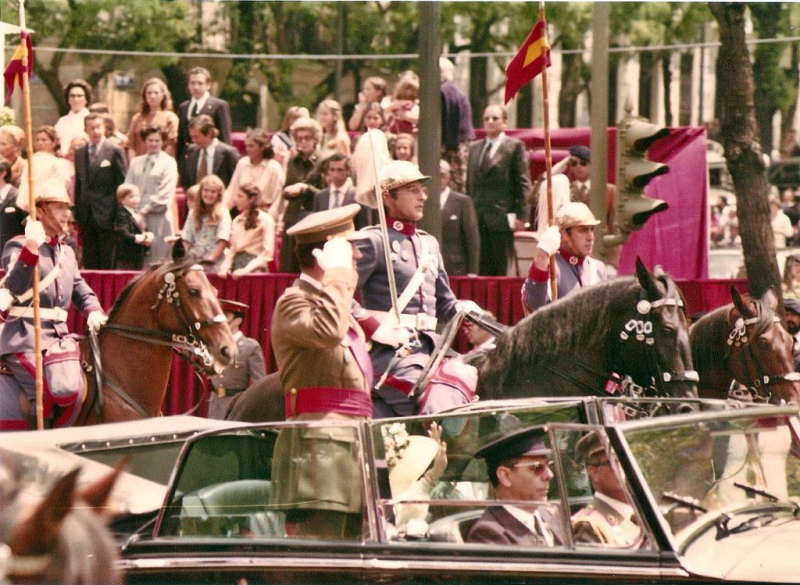
Juan Carlos in 1977 - Photo: https://en.wikipedia.org/ 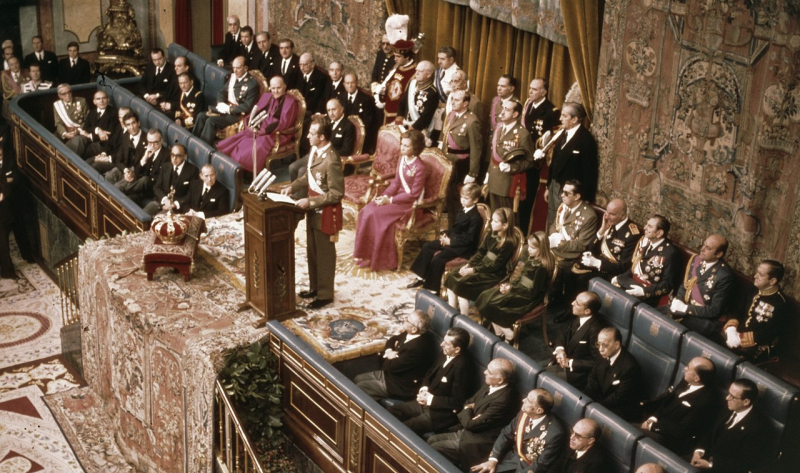
Proclamation as king at the Palacio de las Cortes on 22 November 1975 - Photo: https://en.wikipedia.org/ -
Juan Carlos is largely regarded as a beloved king, having endured that revolutionary endeavor with little to no negative notes on his record. He was under investigation for financial royal corruption. But one of his pastimes enraged the populace even more. He goes bear and elephant hunting. According to reports, the King killed nine bears in 2004, one of which was pregnant. Additionally, there are rumors that Juan Carlos killed a drunk bear in 2006 while on a personal hunting expedition in Russia. The monarchy of Spain claimed the rumors were untrue.
Spain's unemployment rate in April 2012 was 23 percent overall and nearly 50 percent for young employees. But Carlos traveled to Botswana to go elephant hunting. While his subjects were experiencing a tough economic climate, the king spent a lot of money on this extravagant vacation. His action wasn't very well-liked. Everyone is enthusiastic about this trip, not just environmentalists. According to El Pas, a hunting expedition would cost roughly €44,000 in total or about twice the typical annual wage in Spain. A petition requests that the king resigns from his position as honorary head of the World Wide Fund for Nature's Spanish chapter.
The WWF itself asked the King for an interview to discuss the issue. A conference of WWF-Spain was convened in July 2012 in Madrid, when it was voted to remove the King from his honorary presidency by a vote of 226 to 13. He then expressed regret for the hunting excursion.
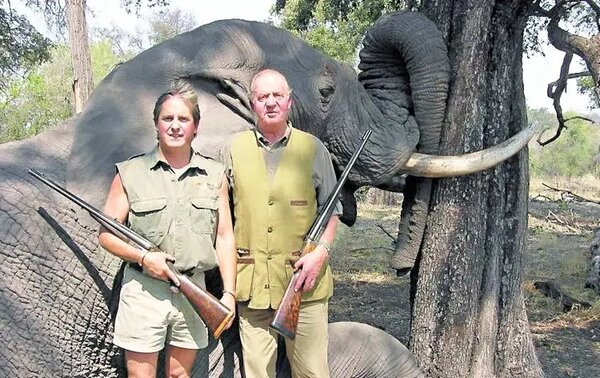
Photo: https://www.periodistadigital.com/ 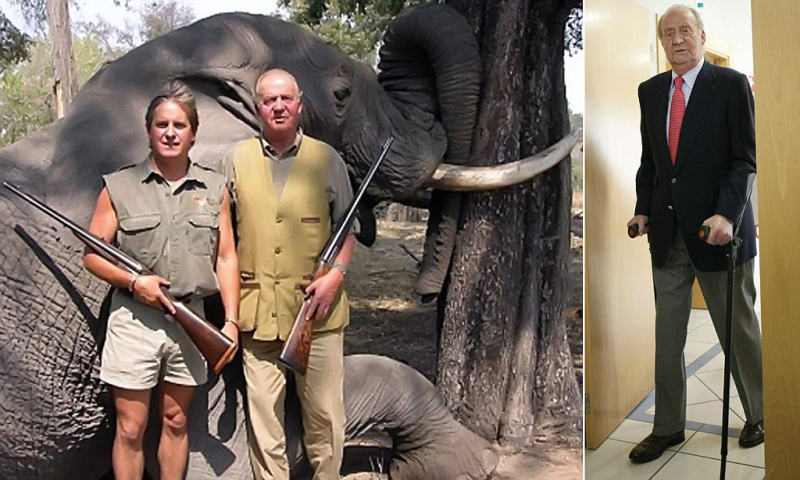
Photo: https://i.dailymail.co.uk/ -
Audio recordings believed to be of former King Corinna Zu Sayn-Wittgenstein-Sayn speaking to a former police chief were leaked to the press in mid-2018. Zayn-Wittgenstein claimed that Juan Carlos had received the post. results from commercial contracts in the Gulf countries especially in the late 2000s construction of the €6.7 billion Haramain high-speed railway in Saudi Arabia and maintaining the obtained this in a bank account in Switzerland.
Swiss authorities began investigating Juan Carlos in March 2020 in connection with a gift of $100 million to Sayn-Wittgenstein in 2012. This donation is related to reimbursement fees charged accusations from Saudi Arabia. A letter written by Juan Carlos to his Swiss lawyers in 2018 stated that the gift was irrevocable, even though he had asked for the money back in 2014.
In June 2020, the prosecutor's office of the Supreme Court of Spain agreed to investigate the supporting role of Juan Carlos in Phase II of the high-speed rail link between Mecca and Medina, to determine the extent of the criminal relevance of the events that took place after his abdication. From 1975 through June 2014, Juan Carlos enjoyed sovereign immunity as the King of Spain and was not subject to legal action.
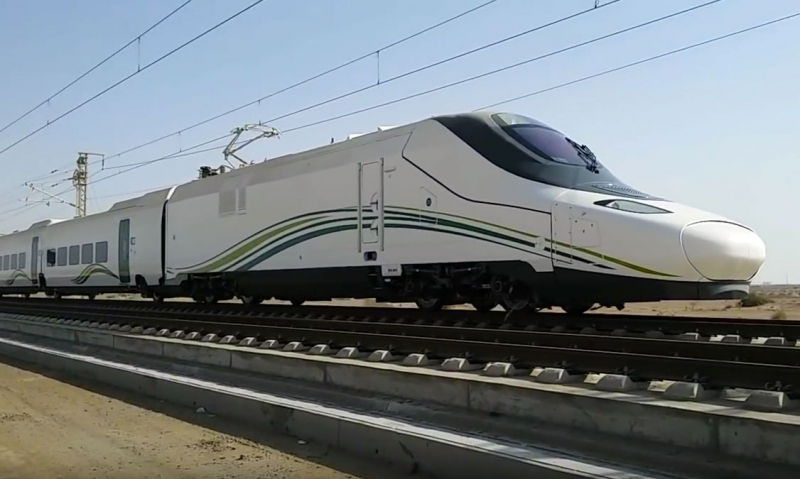
The construction of a high-speed railway in Saudi Arabia was allegedly coordinated with kick-backs to Juan Carlos during the late-2000s. - Photo: https://en.wikipedia.org/ Source: Sky News's Youtube Chanel -
Juan Carlos was abdicated after his hunt. Spanish media speculated about the King's future in early 2014, following public criticism of his participation in an elephant hunt in Botswana and an embezzlement scandal involving his daughter. Cristina and her husband Iñaki Urdangarin. The King's Chief of Staff denied in a press conference that the "option to abdicate" was under consideration.
As required by the Spanish constitution, any abdication would be resolved by an organic act. A draft law was passed with 299 supporters, 19 opponents, and 23 abstentions. On June 18, he signed the organic law passed by parliament hours before his abdication took effect. Juan Carlos is the fourth European monarch to abdicate in just over a year, after Pope Benedict XVI, Queen Beatrix of the Netherlands, and King Albert II of Belgium.
The Spanish constitution at the time of the abdication did not grant legal immunity to a head of state, but the government changed the law to allow this. Unlike his previous immunity, however, the new law holds him accountable to the supreme court, following a similar type of protection afforded to many high-ranking civil servants and politicians in Spain.
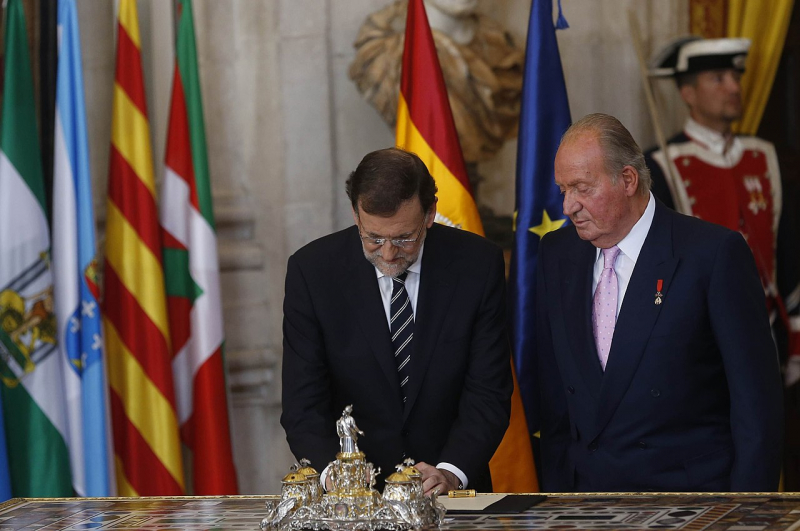
Juan Carlos I next to prime minister Mariano Rajoy, who is seen countersigning the organic law for abdication (18 June 2014). - Photo: https://en.wikipedia.org/ 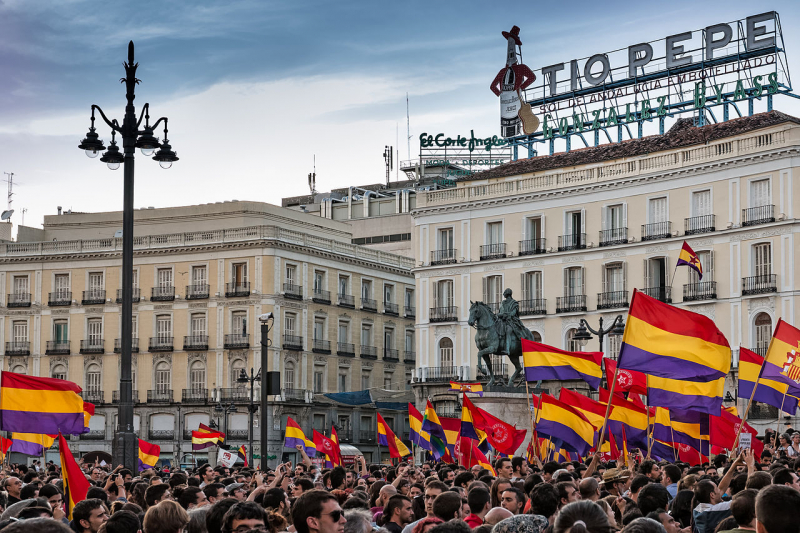
Republican demonstration in the Puerta del Sol on the day that Juan Carlos announced his decision to abdicate - Photo: https://en.wikipedia.org/








